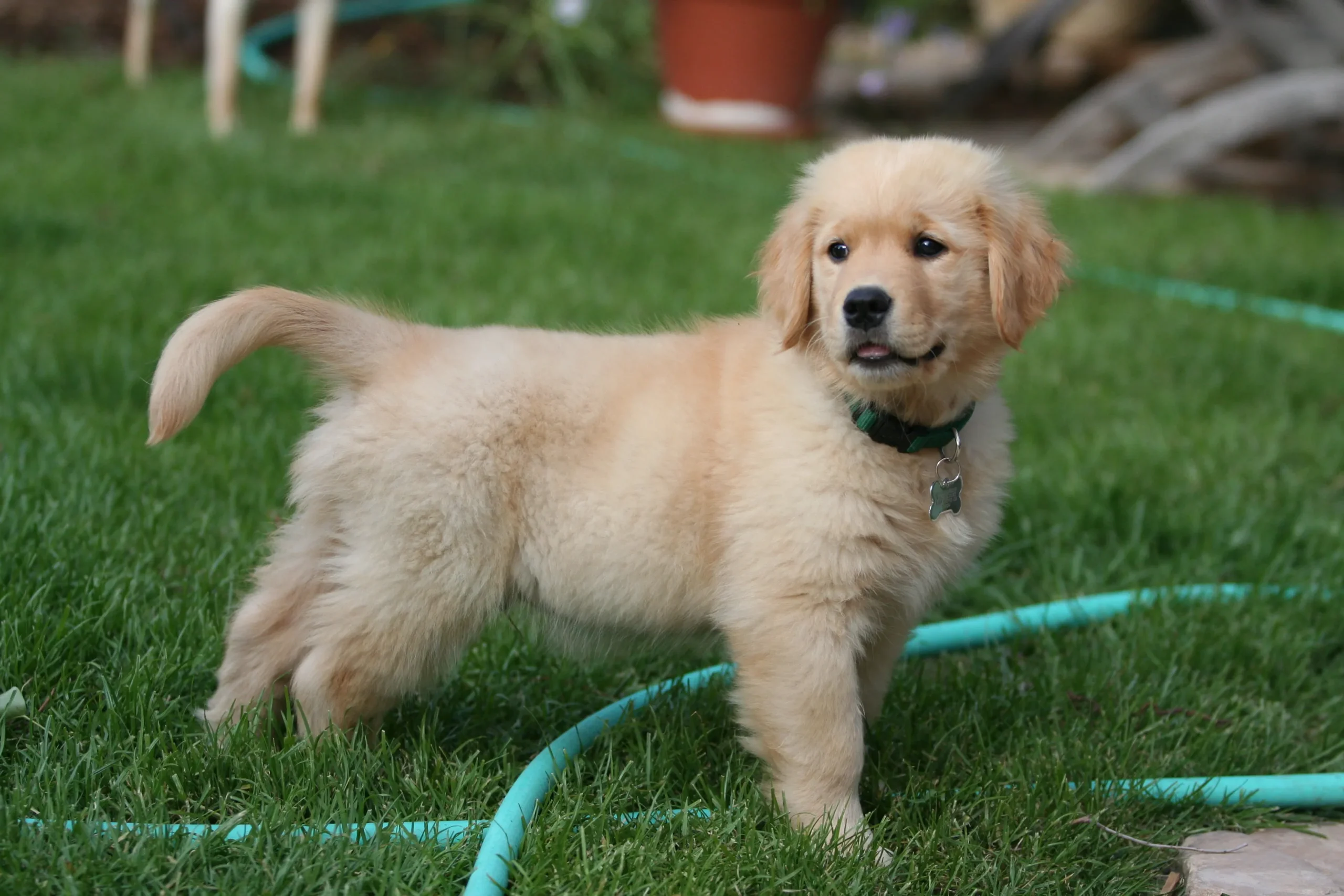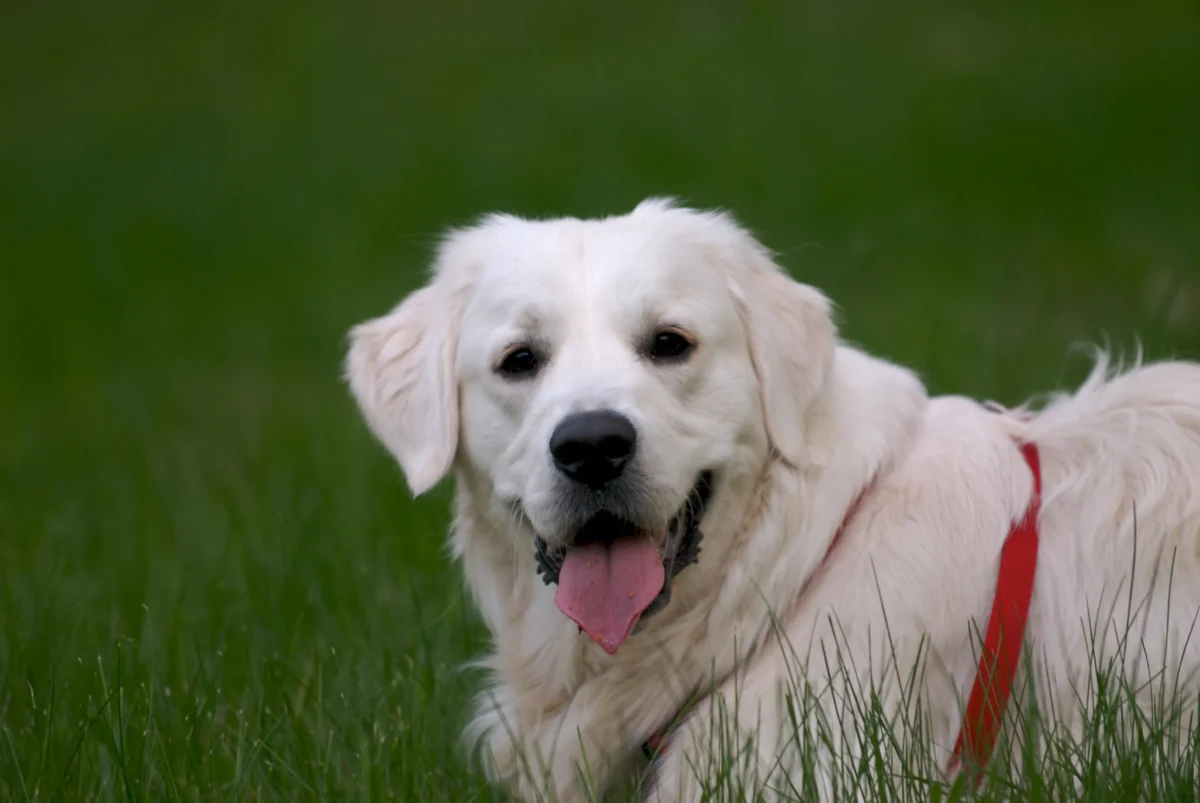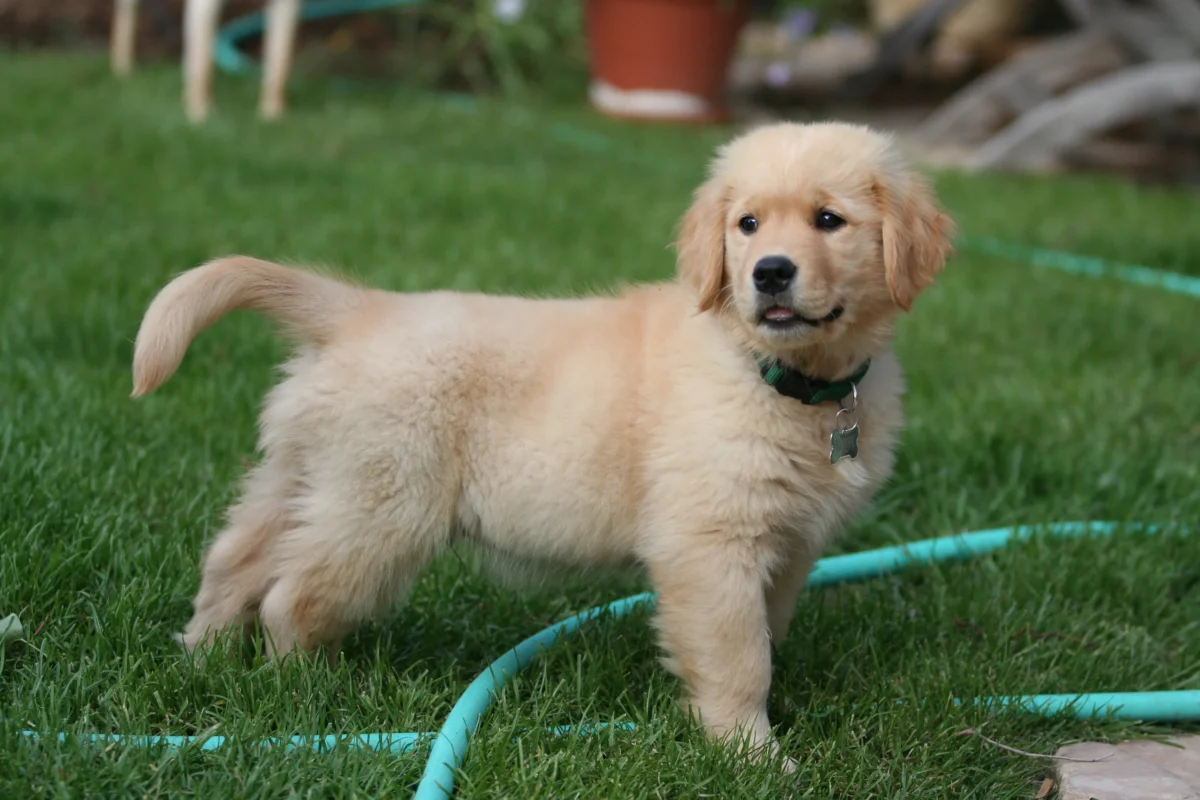If you’re considering getting a golden retriever, you might be wondering if they can be protective. Golden retrievers are known for their friendly and gentle nature, but can they also provide a sense of security? In this article, we’ll explore whether golden retrievers have protective instincts and what factors may influence their protective behavior. Whether you’re looking for a loyal companion or a four-legged guardian, this article will help you understand if a golden retriever can be the protective pet you’re seeking.
Golden retrievers are often hailed as one of the friendliest dog breeds, but does that mean they lack protective instincts? Many golden retriever owners have experienced moments of their beloved pets displaying protective behavior. In this article, we’ll delve into the nature of golden retrievers and their potential for protective instincts. Whether you’re concerned about home security or personal safety, understanding the protective tendencies of golden retrievers will help you make an informed decision when choosing a furry companion.
When it comes to choosing a dog breed, it’s important to consider not only their temperament, but also their ability to provide a sense of protection. Golden retrievers are known for their gentle and friendly nature, but can they also be protective? In this article, we’ll explore whether golden retrievers possess protective instincts and what factors may influence their protective behavior. Whether you’re looking for a loyal and loving companion or a dog that can provide an added layer of security, this article will help you determine if a golden retriever is the right choice for you.
Characteristics of Golden Retrievers
When it comes to choosing the perfect furry companion, it’s important to consider the characteristics of different dog breeds. In this section, we’ll explore the innate qualities of golden retrievers that make them such popular and beloved pets.
1. Friendly and Gentle: Golden retrievers are known for their friendly and gentle nature. They have a natural inclination to be social and get along well with both humans and other animals. This friendly disposition is one of the reasons why golden retrievers are often considered great family dogs.
2. Intelligent and Easy to Train: Another characteristic that sets golden retrievers apart is their high level of intelligence. They are quick learners and eager to please their owners, making them relatively easy to train. Whether you’re teaching them basic commands or more advanced tricks, golden retrievers are up for the challenge.
3. Loyal and Protective: While golden retrievers are generally friendly, they also have a protective instinct that can manifest in various ways. As an experienced dog lover, you may have noticed your golden retriever displaying protective behavior. Whether it’s keeping a watchful eye on your children or barking to alert you of a possible threat, these loyal and protective tendencies can give you peace of mind.
4. Gentle with Children: If you have young children or are planning to have them in the future, you’ll be glad to know that golden retrievers are known for being gentle with kids. Their patient and tolerant nature makes them excellent playmates and companions for little ones. However, it’s always important to supervise interactions between dogs and children to ensure safety.
5. Active and Energetic: Golden retrievers are a highly active and energetic breed. They thrive on exercise and enjoy outdoor activities such as playing fetch, going for walks, and swimming. Regular exercise is not only vital for their physical well-being but also helps to keep them mentally stimulated and happy.
6. Easygoing and Affectionate: Golden retrievers have a laid-back and easygoing personality, making them a pleasure to have around. They are affectionate, always ready for a snuggle or a belly rub. This loving nature makes golden retrievers great therapy dogs and emotional support animals.
Understanding the unique characteristics of golden retrievers can help you create a strong bond with your furry companion. Whether it’s their friendly and gentle nature, their protective instincts, or their love for outdoor activities, golden retrievers have a lot to offer as loyal and
Protective Instincts in Dogs
As a dog owner and lover, you may wonder if golden retrievers have protective instincts. Well, let me tell you, they absolutely do! Golden retrievers are not only known for their friendly and gentle nature but also for their natural instinct to protect their loved ones.
When it comes to protecting their family, golden retrievers take their job seriously. They are incredibly loyal and will go to great lengths to keep you safe. Whether it’s barking to alert you of a potential threat or standing tall between you and a stranger, your golden retriever will always have your back.
You might be thinking, “But what about their sweet and affectionate personality?” Don’t worry, their protective instincts don’t make them aggressive or mean-spirited. In fact, their gentle nature and sense of responsibility make them ideal protectors.

« Unveiling the Ultimate Guide to Golden Retrievers: Everything You Need to Know About These Adorable Family Pets
Discover the Ultimate Secret to a Healthy and Independent Golden Retriever – Dog Steps Unveiled »
Their intelligence and trainability play a significant role in their protective instincts. Golden retrievers are quick learners, and with proper training, you can channel their protective nature in a positive way. By teaching them commands like “watch” or “guard,” you can help them understand when it’s appropriate to be on alert.
It’s important to note that while golden retrievers have a protective nature, it’s not the same as being a guard dog. They won’t typically be territorial or aggressive towards strangers, but their protective instincts will kick in when they sense a potential threat to their family.
If you have a golden retriever, you’ll likely experience their protective nature firsthand. Whether it’s cuddling up next to you when you’re feeling down or standing guard at the front door, they have an innate ability to sense when you need their support and protection.
Golden retrievers have a natural protective instinct that makes them loyal and attentive companions. While they may not be guard dogs, they will always be there to keep you safe and provide you with unconditional love. So, rest assured, with a golden retriever by your side, you’ll always have a furry guardian looking out for you.
Factors Affecting Protective Behavior
When it comes to protective behavior, golden retrievers can exhibit certain tendencies. However, it’s essential to understand that this behavior can vary depending on various factors. Here are a few factors that can influence the protective nature of your golden retriever:
1. Genetics: Like any other breed, a golden retriever’s protective instincts can be influenced by their genetic makeup. Some lines have a stronger predisposition to protect their family members and property, while others may be more laid-back in nature. Keep in mind that individual personality can still play a significant role, even within the same genetic line.
2. Socialization: Early and ongoing socialization plays a crucial role in a golden retriever’s behavior. Proper socialization at a young age helps them develop confidence and become well-adjusted dogs. Exposing your golden retriever to different environments, people, and animals can positively impact their protective behavior.
3. Training and Reinforcement: Training is key in shaping a golden retriever’s behavior, including their protective instincts. Teaching your dog appropriate boundaries, obedience commands, and desensitization techniques can help them become more reliable in protecting you and your property. Always reinforce positive behaviors and avoid encouraging aggressive or fearful tendencies.
4. Environment: The environment in which your golden retriever is raised can also influence their protective behavior. Growing up in a calm and secure environment can help them develop a sense of safety and reduce anxiety. Excessive noise, chaos, or tense situations can trigger stress or fear responses, potentially impacting their protective instincts.
5. Individual Personality: Every golden retriever has its own unique personality. Some may naturally possess a stronger protective instinct, while others may lean more towards being friendly and sociable. It’s important to recognize and respect your dog’s individuality and work with them accordingly.

Remember, a golden retriever’s primary nature is to be friendly, gentle, and sociable. While they can be protective, they are not typically aggressive or guard dogs. Their protective behavior is more aligned with being attentive to your needs and providing loyalty and love. Understanding these factors affecting their protective behavior can help you better understand and nurture your golden retriever’s personality.
Can Golden Retrievers Be Protective?
As a dog lover and owner of both a golden retriever and a Goldendoodle, I can confidently say that golden retrievers have the potential to be protective. With my experience working at animal shelters and veterinary offices, I have seen firsthand how these lovable and friendly dogs can also exhibit a protective instinct.
Golden retrievers are known for their gentle and friendly nature, which makes them great family pets. They have a loving and nurturing personality that extends not only to their human family members but also to other animals. However, when it comes to protecting their loved ones, golden retrievers can surprise you with their dedication and vigilance.
While golden retrievers may not be natural guard dogs like German Shepherds or Rottweilers, their protective instinct can manifest in different ways. They may not bark aggressively or show signs of aggression, but they are excellent at assessing situations and detecting potential threats. Golden retrievers have an innate ability to sense danger and can alert their owners by barking or becoming visibly alert.
Additionally, golden retrievers are incredibly loyal to their family members and will go to great lengths to keep them safe. Whether it’s accompanying you on walks, supervising children at play, or being attentive to your emotional well-being, golden retrievers make it their mission to be your loyal protectors.

It’s important to note that not all golden retrievers will display equal levels of protectiveness. Factors such as genetics, socialization, training, and individual personality can influence a golden retriever’s protective behavior. However, it is not uncommon to find golden retrievers who are fiercely protective of their loved ones.
While golden retrievers are typically known for their friendly and gentle nature, they do possess a protective instinct. While they may not be guard dogs in the traditional sense, they can still be a source of comfort and security for their owners. Whether it’s watching over your family or sensing potential danger, golden retrievers have a knack for being your furry protectors.
Training Golden Retrievers to Be Protective
As a dog lover and owner of both a golden retriever and a Goldendoodle, you may wonder if these gentle-natured breeds can also be trained to be protective. The good news is that with proper training and socialization, golden retrievers can indeed develop a protective instinct. Here’s how you can train your golden retriever to be a loyal and vigilant protector:
- Start with socialization: Introduce your golden retriever to various people, animals, and environments from a young age. This will help them develop confidence, reduce fear, and become comfortable with different situations. Socialization also plays a crucial role in teaching your golden retriever to distinguish between friendly and potential threats.
- Teach basic commands: Begin training your golden retriever with basic commands such as “sit,” “stay,” and “come.” These commands establish your role as the leader and give you control in potentially dangerous situations. Consistency and positive reinforcement are key to successful training.
- Expose them to different situations: Gradually expose your golden retriever to different scenarios, such as loud noises, strangers approaching, and simulated emergencies. This exposure will help them understand how to react and protect their loved ones when faced with unfamiliar or potentially harmful situations.
- Focus on obedience training: As you progress with training, focus on obedience commands specific to protection, such as “guard” or “watch.” By teaching your golden retriever to respond to these commands, you can direct their protective instincts when necessary. However, it’s crucial to balance this training with an understanding of when it is appropriate for them to be protective.
- Provide advanced training: If you want your golden retriever to have an increased level of protection, consider enrolling them in advanced training programs specifically designed for protection dogs. These programs can further enhance their skills and instincts under expert guidance.
Tips for Dealing with a Protective Golden Retriever
Dealing with a protective golden retriever can be both rewarding and challenging. Your furry friend’s protective nature is undoubtedly one of the reasons you love them, but it’s important to manage it in a way that keeps both you and your dog safe and happy. Here are some helpful tips for handling a protective golden retriever:
1. Socialization is Key
Socializing your golden retriever from a young age is crucial in shaping their behavior. Expose them to different people, animals, and environments, so they become comfortable and confident in various situations. This will help prevent their protective instincts from becoming overly aggressive or fearful.

2. Set Clear Boundaries
Establishing boundaries helps your golden retriever understand what behavior is acceptable and what is not. Teach them basic commands like “sit,” “stay,” and “leave it” to enforce their behavior when needed. Consistency and positive reinforcement are essential in setting clear boundaries and ensuring your dog knows their role in protecting you and your home.
3. Obedience Training
Taking your protective golden retriever through obedience training can help further refine their protective instincts. Enroll them in a structured training program that builds on their obedience skills. Focus on commands like “drop it,” “heel,” and “recall” to enhance their responsiveness to your cues.
4. Positive Reinforcement
Reward your golden retriever with treats, praise, and affection when they display appropriate protective behavior. Positive reinforcement encourages their protective instincts while reinforcing good manners. Avoid punishing or scolding as it may confuse or frighten your dog.
5. Consult a Professional
If you’re struggling to manage your golden retriever’s protective behavior, don’t hesitate to seek professional help. A certified dog trainer or behaviorist can provide specialized guidance tailored to your dog’s needs and help you address any challenging behaviors effectively.
Remember, a protective golden retriever can be a valuable asset, but it’s crucial to strike a balance between their guarding instincts and their ability to socialize and engage positively with the world around them. With proper training, patience, and understanding, you can harness your golden retriever’s protective nature and enjoy a harmonious relationship with your loyal companion.

Conclusion
By implementing the tips provided in this article, you can effectively handle a protective golden retriever. Socialization plays a crucial role in helping your furry friend develop positive behaviors and interactions with others. Setting clear boundaries ensures that your golden retriever understands what is acceptable behavior and what is not. Obedience training helps strengthen the bond between you and your pet, while also teaching them important commands and cues.
Remember to use positive reinforcement techniques, such as treats and praise, to reward your golden retriever for good behavior. This will encourage them to continue displaying positive and appropriate protective instincts. However, if you find that your golden retriever’s protective behavior becomes excessive or problematic, it may be beneficial to seek professional help from a dog trainer or behaviorist.
By finding the right balance between your golden retriever’s protective instincts and their ability to socialize and engage positively with the world, you can ensure that they are a loving and loyal companion while still being able to protect you when necessary. With patience, consistency, and love, you can help your golden retriever become a well-rounded and well-behaved member of your family.








